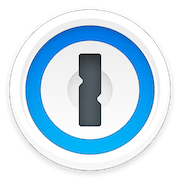Looking for the best identity management software? Check out our comprehensive buyer's guide for expert insights to help you make the right decision. Choose wisely with our help today!
Are you tired of managing multiple usernames and passwords across various digital platforms and applications? Identity management software could be the solution you've been searching for. With the rise of remote work and digital transformation, securely managing identities and permissions has become a top priority for businesses of all sizes. But with a wide range of options on the market, choosing the right one can be a daunting task. In this buyer's guide, we'll provide an in-depth analysis of the key features and benefits of this tool, allowing you to make an informed decision about which option is the best fit for your organization.
What is identity management software?
Identity management software (IDM) is a type of software that allows companies to manage their users' digital identities across various applications and platforms in a secure and streamlined manner. It provides a comprehensive solution for managing the entire lifecycle of a user's identity, including registration, authentication, authorization, and privacy.
Its common use cases include:
- User provisioning: IDM software helps companies automate the process of setting up and managing user accounts for various applications and systems. This ensures that users have access to the appropriate resources and permissions based on their roles and responsibilities.
- Single sign-on (SSO): SSO is a feature of IDM software that allows users to log in just once, and then access multiple applications and systems without having to authenticate each time. This not only simplifies the login process for users but also improves security by reducing the number of passwords that users need to remember.
- Access control: An IDM solution also provides companies with a centralized platform for managing access controls. This includes defining user roles, setting up access policies, and monitoring user activity to detect potential security breaches.
- Password management: Password management is a critical aspect of IDM technology, allowing companies to enforce password policies and ensure that passwords are strong, unique, and frequently changed.
Identity management software is commonly used by organizations of all sizes and across various industries, including healthcare, finance, education, and government. Organizations that typically use it include:
- Large enterprises with a complex IT environment and thousands of users
- Organizations with stringent regulations around data privacy and security, such as healthcare providers and financial institutions
- Companies that rely heavily on SaaS applications and cloud services, as IDM software can help simplify access management and ensure data security
What benefits does an IDM platform come with?
This type of system enables businesses to manage, control, and secure access to important company information and resources, leading to significant benefits such as:
- Enhanced security: Identity management software helps businesses protect their sensitive data by preventing unauthorized access. This is achieved by enforcing strong authentication measures and limiting access to sensitive information only to authorized personnel.
- Improved productivity: With a centralized identity management system, businesses can streamline their access workflows, reducing manual processes that take up valuable time and resources. This results in improved productivity and happier employees.
- Compliance with regulations: Many industries have strict regulations around data retention and information security, making it important for businesses to have a compliant identity management system in place. Businesses can ensure they are meeting all necessary requirements easily and efficiently making use of this program.
- Cost savings: Identity management software can help businesses save money by eliminating the need for manual user access management, reducing the risk of data breaches and avoiding costly fines that come with regulatory non-compliance.
- Better user experience: By providing users with a single, streamlined login process with access to multiple resources and applications, the IDM tool improves the overall user experience. This leads to increased employee satisfaction and a more positive work environment.
10 main features of identity management software
Identity management software (IDM) has become an essential tool for organizations seeking to manage user access and authorization while also safeguarding their data and systems. It is designed to streamline the authentication and authorization processes, providing a secure environment for operations. In this section, we will highlight 10 of its common features:
1. Authentication management: IDM systems ensure that the user is who they claim to be through authentication mechanisms such as multi-factor authentication (MFA), single sign-on (SSO), and biometric authentication.
2. Authorization management: It enables organizations to create policies that dictate user access and rights within the system. This level of authorization management helps to ensure that users only have the access they require to complete their work.
3. Automated provisioning: This tool automates the provisioning process for user accounts, making it easy for organizations to ensure timely onboarding and offboarding of employees.
4. Password management: The software includes tools for managing user passwords, such as password expiry policies, enforcement of strong passwords, and password reset mechanisms.
5. Audit and compliance: This technology helps organizations to meet compliance requirements and maintain audit trails by providing detailed reports on user access and activity.
6. Role-based access control: IDM software enables organizations to define roles based on job functions, and assign specific access permissions to those roles, streamlining the process of granting access to new employees.
7. Self-service portal: It often includes self-service portals that enable users to manage their own profiles, including their passwords and access permissions.
8. Federation: An identity management solution supports federation protocols such as SAML, OAuth, and OpenID Connect, which enable single sign-on to multiple applications and services.
9. Directory integration: IDM software often integrates with directory services such as Microsoft Active Directory, enabling seamless user management across all systems.
10. Cloud-based: An IDM program has evolved over time, and many modern systems are cloud-based, which provides greater flexibility and scalability.
The features highlighted above ensure that IDM software is a comprehensive solution that supports robust authentication and authorization, user provisioning, and compliance reporting. With one in place, organizations can be confident that their systems are secure and user access is managed effectively.
Considerations to look into when adopting an IDM system
Whether you’re a small startup or a large corporation, it’s essential to keep your system secure, and an identity management application can help with this. However, not all solutions are the same. Before you make a purchase, there are several factors you should consider.
Firstly, you need to consider your business needs. Different identity management systems are designed for different purposes, and you must choose one that meets your specific business requirements. Consider the number of employees, the type of data you need to protect, and the devices and operating systems that you use.
Security is also a critical factor when purchasing identity management software. A robust identity management system should have multiple layers of security to prevent unauthorized access. Look for solutions that offer two-factor authentication, password complexity enforcement, and multi-factor identity verification. Research shows that 44% of security professionals believe that an identity and access management solution will address their current security gaps.
Implementation and ease of use are also important factors to consider. Your chosen solution should require minimal training and be easy for your team to use. Consider the level of technical expertise of your employees and choose a system that works well for all team members, regardless of their technical skills.
Another essential factor is scalability. Your business needs may change over time, and your identity management solution should be able to grow with you. The system you choose should allow you to add or remove users as required and easily integrate with other apps.
Considering the cost of the solution is crucial. Identity management software can be a significant investment, and you should consider the total cost of ownership, including implementation costs, licensing fees, and maintenance costs. Look for solutions that offer flexible pricing plans and prioritize systems that will bring a positive return on investment.
Industry trends for identity management software
Identity management software trends are continuously evolving and keeping up with them is crucial for businesses in 2024 and beyond. One of the most significant trends is the increasing adoption of cloud-based identity management platforms, such as Okta. These platforms provide adaptive and flexible security features and offer centralized access control for multiple applications and devices.
Another trend is the rising importance of biometric authentication methods, as more businesses opt for secure and user-friendly solutions to manage access control. Biometric authentication uses unique biological features like fingerprints, facial recognition, and voice authentication, which is a widespread feature in voice assistants and smart speakers. With the increase of voice search optimization, biometric authentication will play a significant role in identity management.
Furthermore, the adoption of AI-powered identity management tools is expected to grow rapidly in the coming years. AI can enhance identity management by detecting and preventing fraudulent activities, simplifying access requests, and enabling seamless identity verification. AI-powered tools are becoming more sophisticated as machine learning algorithms become more advanced.
The regulation around data privacy is likely to continue to increase, which will inevitably alter the way businesses manage identities. Companies will need to ensure they are compliant with regulations such as the General Data Protection Regulation (GDPR) and prioritize data protection.
Cloud-based identity management platforms, biometric authentication, AI-powered identity management tools and data privacy regulations are the biggest identity management software trends in 2024 and beyond, and keeping up with them is critical for businesses.
Conclusion
In conclusion, identity management software is an essential component of an organization's security infrastructure. It not only protects sensitive information but also simplifies user access and enhances productivity. A study from AARP confirms that just 14% of consumers subscribe to identity theft protection services. As cyber threats continue to evolve, the importance of sophisticated and adaptive identity management solutions will increase, making them indispensable for organizations of all sizes. This innovation plays a critical role in modern organizational security by ensuring that the right individuals have access to the right resources at the right times for the right reasons.




